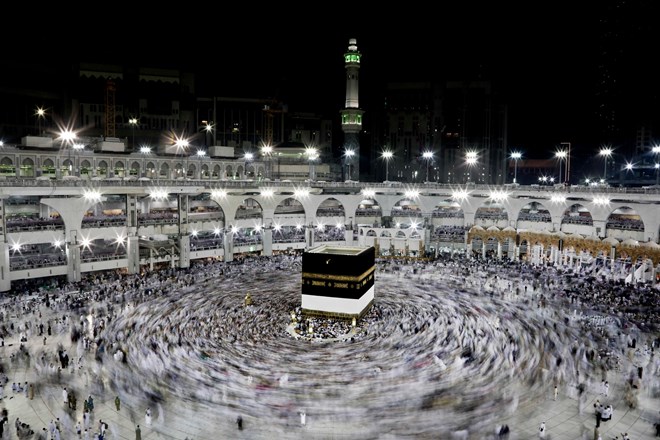
Saturday August 10, 2019
By Natasha Frost

About 1.5 million people from 150 countries attended the 2016 pilgrimage in Mecca.
For almost 1400 years, Muslim pilgrims have boarded boats,
saddled up camels, or set off on foot for Mecca. Today, they’re making the same
journey, but an embrace of technology is making their visit faster, safer, and
more efficient than ever.
The hajj,
from the Arabic word for pilgrimage, takes place every year for five or six
days of the last month of the Islamic calendar. This year’s event officially
begins today (August 9), with over a million people already in place in the
Saudi city.
Making this
journey at some point in one’s life is one of the fundamental obligations of
Islam—and one of its most arduous. But though the experience is often euphoric,
it may come at a high cost. In India, Muslims enter a lottery,
or pay as much as a third of the average annual salary to private tour
operators for the experience. For American Muslims, costs may be upwards of $10,000.
Then there are the risks: in recent years, overcrowding or other accidents have
resulted in the deaths of hundreds. In 2015, at least 2,200 people died in a stampede.
For even
the most modern cities, a sudden influx of two million visitors would presents
major logistical challenges. Here, many of the key sites are thousands of years
old. Saudi Arabia, which pulls in $12 billion a year annually from
hajj tourism, has therefore invested heavily to modernize the event and
minimize crowding. With some Muslim leaders calling for a boycott of the
hajj in light of Saudi political actions,
the kingdom has every incentive for everything to go as smoothly as is
physically possible.
Physical
constraints on how many pilgrims Mecca can safely accommodate means that, under
the status quo, it would take more than 580 years for every living Muslim to
make the trip. To meet the Vision 2030 goal
of ultimately playing host to 30 million annual pilgrims, or as much as 15
times the current total, by 2030, Saudi authorities are turning to technology.
This year,
the first high-speed rail link between Mecca and Medina will cut eight hours off the journey by
road. Once pilgrims arrive, a raft of smart initiatives, encompassing AI and
the Internet of Things, are in place to connect them to medical care if they
need it and keep tabs on the areas with the most crowding.
In one such
pilot, some 25,000 pilgrims have been issued smart cards from the Ministry of
Hajj and Umrah. This wearable tech is scanned as they move from location to
location, while individual location trackers help service providers to give
assistance as soon as it’s requested. For pilgrims themselves, a matching app shows
the transportation schedule and which spots are the most crowded. People who do
fall ill may be attended to by a robot physician,
built to take patients’ temperature or check their pulse. These build on
initiatives already in place, including an electronic early-warning system,
created with the help of the World Health Organization, that sounds an alarm in
the event of some kind of outbreak of disease.
Meanwhile, six transmitting stations with
350 sensors across Mina—the heart of the hajj route—are in place to gather data
about which pilgrims are where, with HD cameras feeding information about the
movements of crowds to a monitoring center. As yet, there’s no real backlash to
the surveillance—perhaps in light of precisely the kind of crush-related
tragedies it is seeking to prevent.
Not all of
the initiatives are focused on keeping people safe. To support hajj tourism, a local bank has
issued so-called Hajj Bank cards, in an anti-theft measure that would allow
pilgrims to deposit money on arrival. A “pilgrimage without a bag” program is
encouraging pilgrims to travel light by transporting their luggage from
wherever they are staying to the designated Hajj terminal at King Abdul Aziz
International Airport.
By 2030, if all goes well, the hajj will be
even smarter—and still more lucrative for a host country with already deep
pockets.